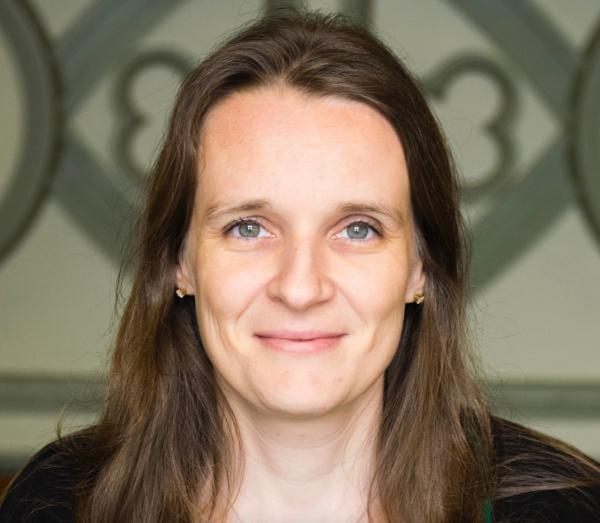
Among the remaining incurable conditions that affect children is osteogenesis imperfecta or brittle bone disease, an inherited (genetic) bone disorder that is present at birth. At The City College of New York, Alessandra Carriero, assistant professor of biomedical engineering, is engaged in a groundbreaking study on improving treatment for children with this rare disease that is characterized by fragile bones that break easily.
Carriero’s research in City College’s Grove School of Engineering is supported by a two-year $419,606 grant from the National Institutes of Health (NIH) through its Eunice Kennedy Shriver National Institute of Child Health and Human Development (NICHD).
According to Carriero, the “high-risk high reward” grant is enabling her and her Italian collaborators in Dr. Antonella Forlino's lab at the University of Pavia, to study a novel bone specific pharmacological treatment for osteogenesis imperfecta using zebrafish models of the disease.
Osteogenesis imperfecta is caused by defective genes. These genes affect how the body makes collagen, a protein that helps toughen bones. The condition can be mild, with only a few fractures during a person's lifetime. In more severe cases, it can involve hundreds of fractures that occur without any apparent cause.
“These children get extremely disabled as their disease is due to modification of collagen type I - the most abundant protein in our body,” said Carriero. “With this NIH grant we will investigate the efficacy of a novel 4-phenyl butyrate drug to reduce endoplasmic reticulum stress in osteogenesis imperfecta cells thus improving bone quality. We will also examine the ability of a synthetic collagen hybridizing peptide as carrier to deliver the drug directly to the bone cells. This therapy may transform treatment strategies for bone fragility in brittle bone disease.”
Currently, treatment for osteogenesis imperfecta, of which fewer than 20,000 cases are reported in the United States every year, include bone-strengthening medications, physical therapy, and orthopedic surgery.
About the City College of New York
Since 1847, The City College of New York has provided a high-quality and affordable education to generations of New Yorkers in a wide variety of disciplines. CCNY embraces its position at the forefront of social change. It is ranked #1 by the Harvard-based Opportunity Insights out of 369 selective public colleges in the United States on the overall mobility index. This measure reflects both access and outcomes, representing the likelihood that a student at CCNY can move up two or more income quintiles. In addition, the Center for World University Rankings places CCNY in the top 1.8% of universities worldwide in terms of academic excellence. Labor analytics firm Emsi puts at $1.9 billion CCNY’s annual economic impact on the regional economy (5 boroughs and 5 adjacent counties) and quantifies the “for dollar” return on investment to students, taxpayers and society. At City College, more than 16,000 students pursue undergraduate and graduate degrees in eight schools and divisions, driven by significant funded research, creativity and scholarship. CCNY is as diverse, dynamic and visionary as New York City itself. View CCNY Media Kit.
Jay Mwamba
p: 212.650.7580
e:
jmwamba@ccny.cuny.edu